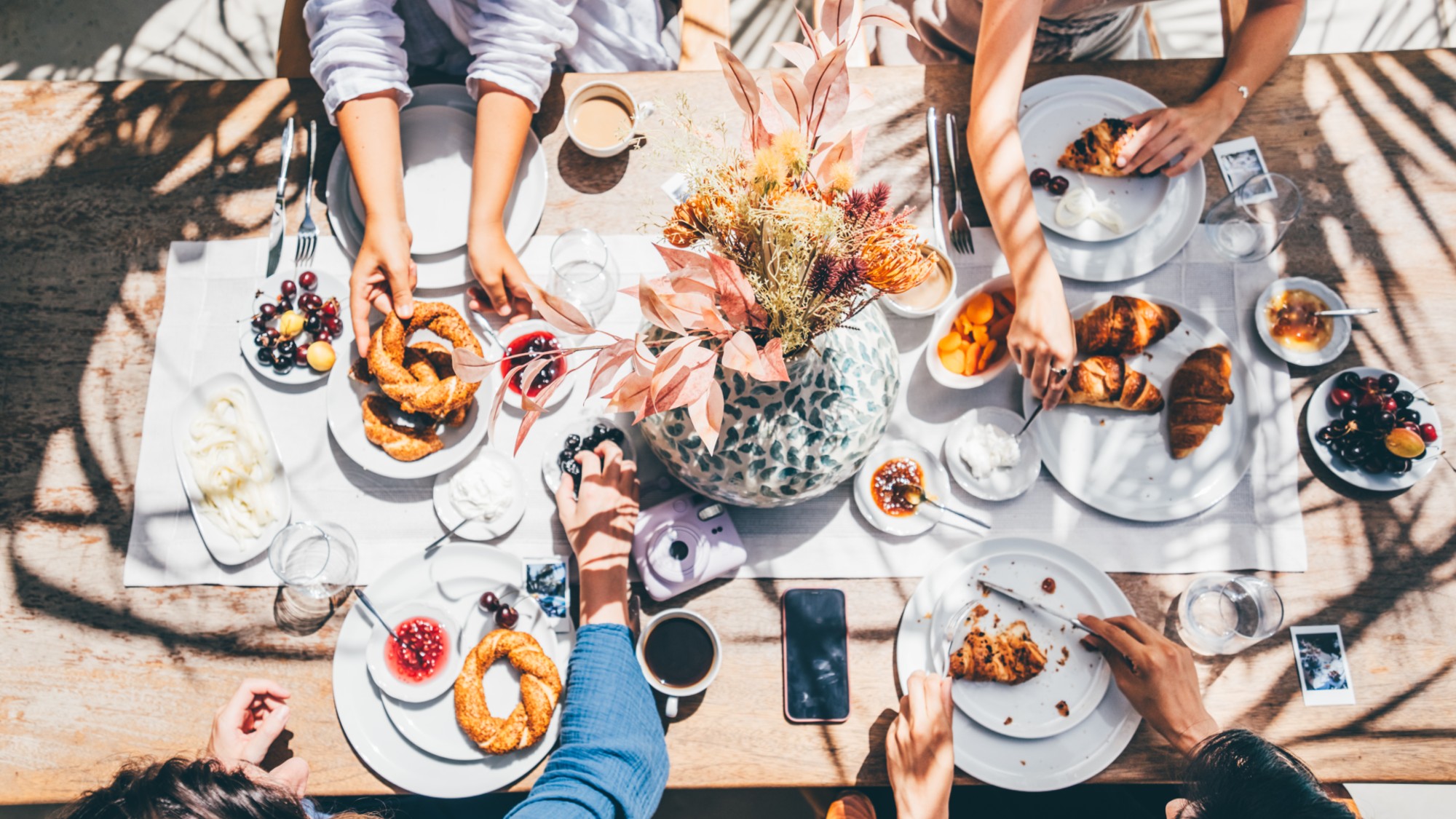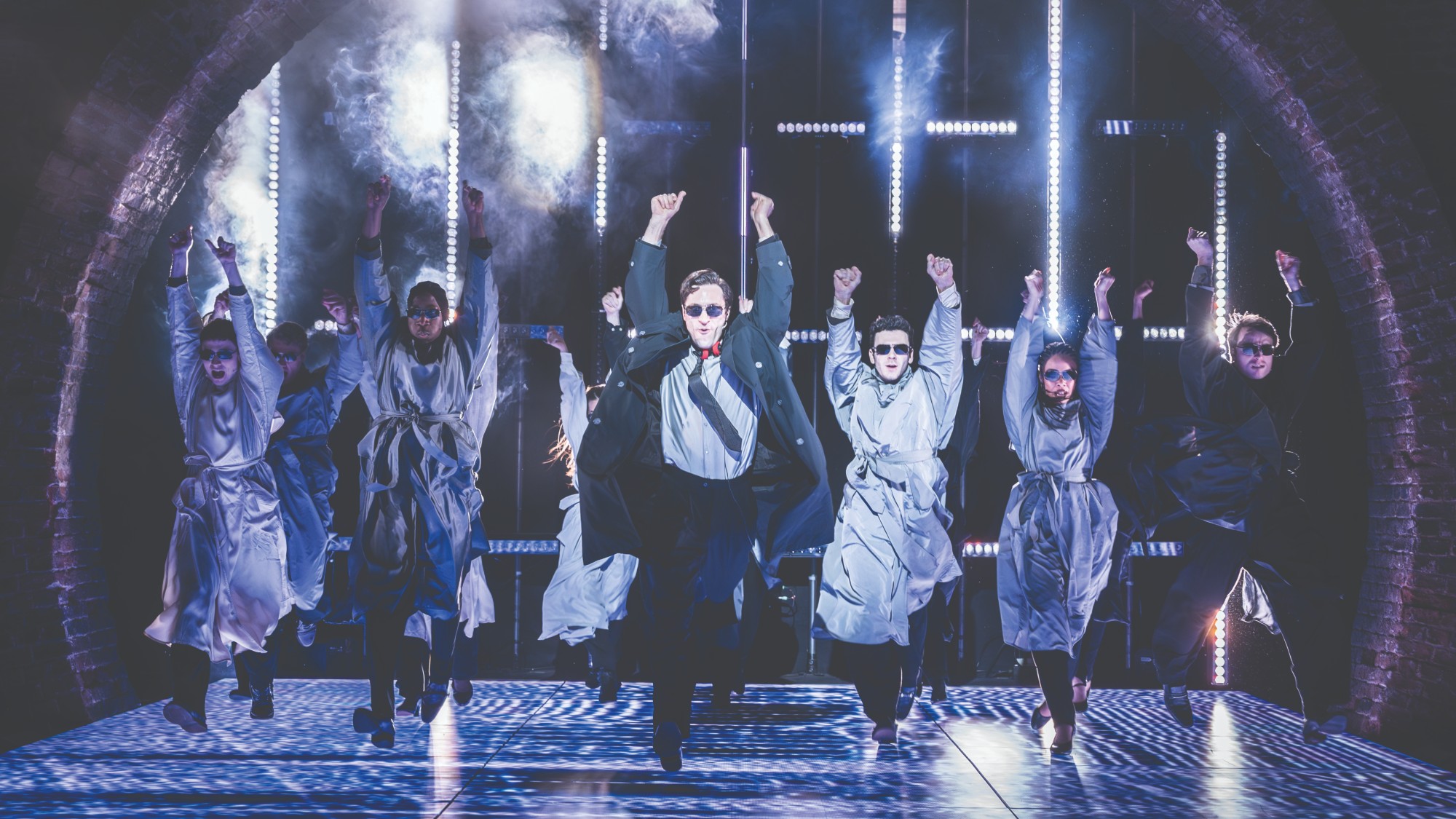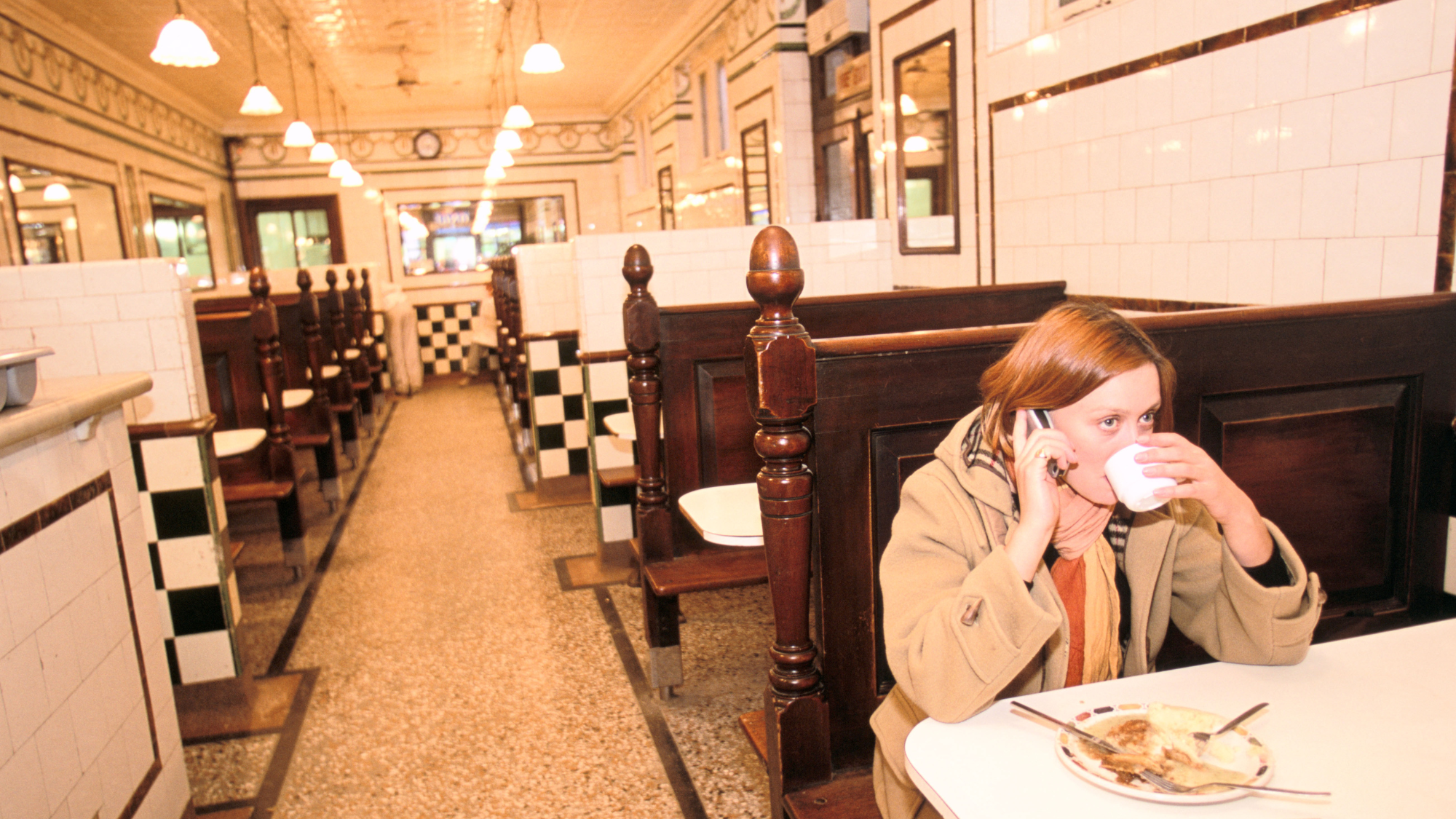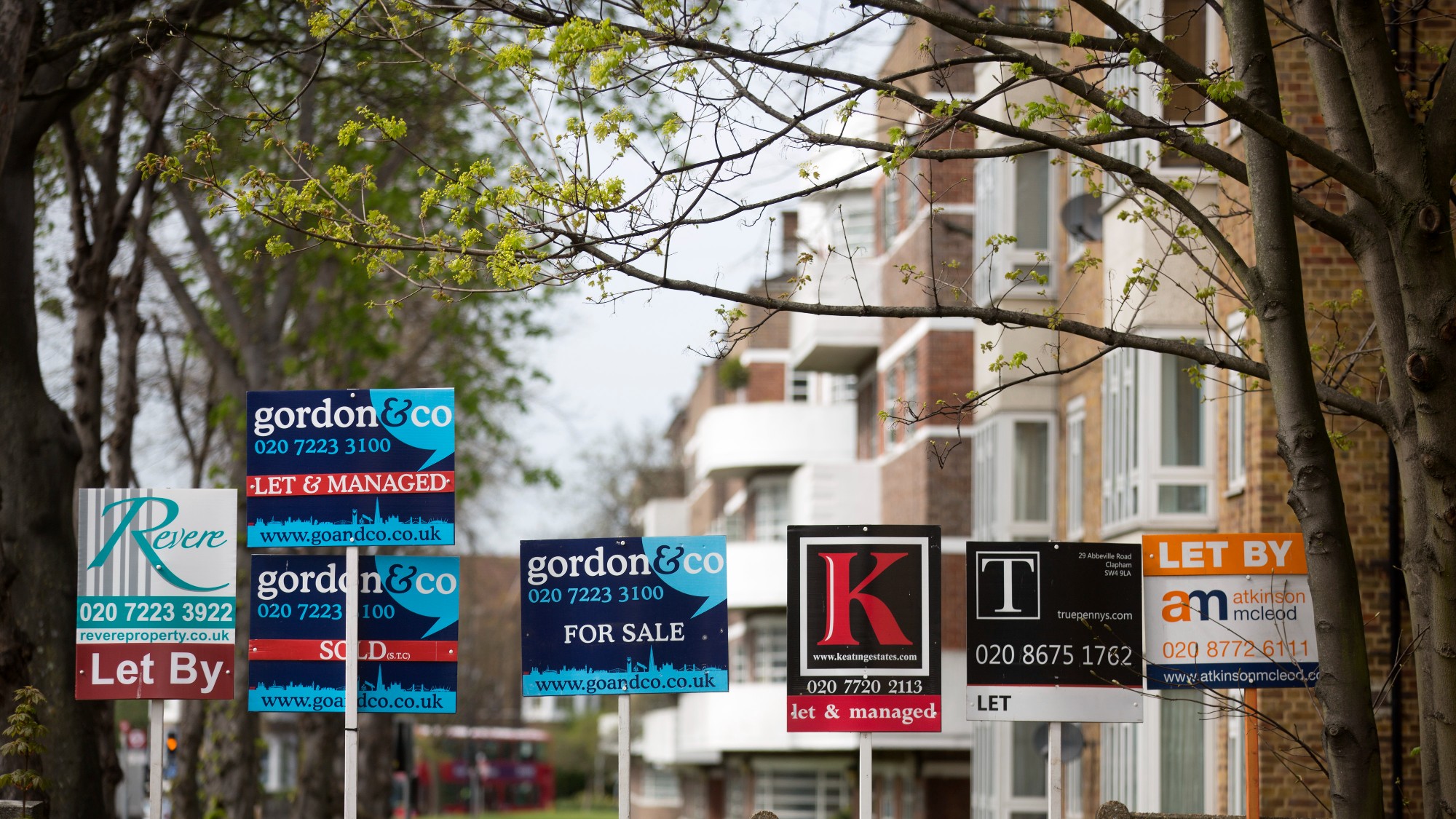The rise of the 6pm dinner: the end of days?
Early restaurant reservations are rising in the UK but is this post-pandemic efficiency or a US-led wellness trend?

A free daily email with the biggest news stories of the day – and the best features from TheWeek.com
You are now subscribed
Your newsletter sign-up was successful
"In case more evidence was needed of the death of civilisation," said Ed Cumming in The Telegraph, "a boom in 'early dining' is reported."
According to online reservation platform OpenTable, 6pm bookings are up 11% year on year in London, and 6% across the country. "Worse still", 5pm bookings in London are up 10% year on year – "presumably for diners eating with their nursery-aged children". While some find the trend hard to swallow, the new appetite for early dinner is clear.
'Decadent' early dining
The average dinner time in the UK is now 6.12pm, according to hospitality tech service Zonal. And restaurants are "adapting to meet demand", introducing early set menus in response to the "cultural shift", said The Times.
The Week
Escape your echo chamber. Get the facts behind the news, plus analysis from multiple perspectives.

Sign up for The Week's Free Newsletters
From our morning news briefing to a weekly Good News Newsletter, get the best of The Week delivered directly to your inbox.
From our morning news briefing to a weekly Good News Newsletter, get the best of The Week delivered directly to your inbox.
There's a rising awareness that late-night dining isn't as healthy as an earlier meal. "Wellness-focused" and "sober-curious" diners are swapping "late-night indulgence for early evening sobriety".
But it's the post-pandemic world of work that's been pivotal. Working from home means finishing earlier, which "naturally leads to earlier dining", Lucia Reisch, professor of behavioural economics from the University of Cambridge, told the paper.
Even for those who make it into the office, the early table booking comes down to "the very mechanics of metropolitan living", said restaurant critic Tim Hayward in the Financial Times. "It's getting harder to live close to the centre of town if you're not old and rich," said one maître d'. "People can't afford to go home" and "then come back" again.
Many Brits are also "adopting more American working hours, getting into work earlier", and therefore less keen to be "dining into the night", Sam Hart, London restaurant group owner, told the paper.
A free daily email with the biggest news stories of the day – and the best features from TheWeek.com
Data suggests Americans typically eat dinner between 6pm and 7pm, said Lauren Collins in The New Yorker in 2019. And early dinner in a restaurant is a great experience: getting a reservation is "no problem" and the room is "clean and fresh and running smoothly".
Despite "its connotations of denture-friendly fare and penny-pinching, early dinner is the most decadent meal there is. You're familiar with dinner and a movie? Well, how about dinner and a movie and a bath and a book and sex and rearranging your whole spice drawer if you feel like it?"
'Unarguably sexy' late dinner
"In an era of hyperoptimisation, we've become accustomed to prioritising efficiency and speed over the process and pleasure of minutiae," said Arielle Domb in London's The Standard.
Eating early means going to bed early, and "feeling rested before a morning workout", which is "no doubt appealing to Gen Z". But there is "something unarguably sexy about a late-night dinner". It means "resisting toxic ideas" about "efficiency and 'healthy' consumption", and "tuning into the life-affirming joy of dining slowly" with those you love.
Yes, "a fightback is afoot", said The Telegraph's Cummings. Some restaurants are "following the example set by Chinatown or the Middle Eastern spots on the Edgware Road which have always understood" the later meal, and offering cheaper drinks or a discounted menu to late-night diners.
Early dinners "might be perfect for booze-dodging Americans who need to get back into their hyperbaric chambers" before work starts at 4am. But, for the rest of us, "there is a kind of magic" in "making friends at a party and scurrying off to find somewhere to eat". After all, "nobody has ever fallen in love over a salad at 5.30pm".
Harriet Marsden is a senior staff writer and podcast panellist for The Week, covering world news and writing the weekly Global Digest newsletter. Before joining the site in 2023, she was a freelance journalist for seven years, working for The Guardian, The Times and The Independent among others, and regularly appearing on radio shows. In 2021, she was awarded the “journalist-at-large” fellowship by the Local Trust charity, and spent a year travelling independently to some of England’s most deprived areas to write about community activism. She has a master’s in international journalism from City University, and has also worked in Bolivia, Colombia and Spain.
-
 How the FCC’s ‘equal time’ rule works
How the FCC’s ‘equal time’ rule worksIn the Spotlight The law is at the heart of the Colbert-CBS conflict
-
 What is the endgame in the DHS shutdown?
What is the endgame in the DHS shutdown?Today’s Big Question Democrats want to rein in ICE’s immigration crackdown
-
 ‘Poor time management isn’t just an inconvenience’
‘Poor time management isn’t just an inconvenience’Instant Opinion Opinion, comment and editorials of the day
-
 The year’s ‘it’ vegetable is a versatile, economical wonder
The year’s ‘it’ vegetable is a versatile, economical wonderthe week recommends How to think about thinking about cabbage
-
 Arcadia: Tom Stoppard’s ‘masterpiece’ makes a ‘triumphant’ return
Arcadia: Tom Stoppard’s ‘masterpiece’ makes a ‘triumphant’ returnThe Week Recommends Carrie Cracknell’s revival at the Old Vic ‘grips like a thriller’
-
 How to navigate dating apps to find ‘the one’
How to navigate dating apps to find ‘the one’The Week Recommends Put an end to endless swiping and make real romantic connections
-
 American Psycho: a ‘hypnotic’ adaptation of the Bret Easton Ellis classic
American Psycho: a ‘hypnotic’ adaptation of the Bret Easton Ellis classicThe Week Recommends Rupert Goold’s musical has ‘demonic razzle dazzle’ in spades
-
 Can London’s pie and mash shops make a comeback?
Can London’s pie and mash shops make a comeback?Under the Radar Traditional East End eateries are on the ‘brink of extinction’ – but a younger generation is giving the Cockney cuisine an unexpected boost
-
 Breaking news: the rise of ‘smash hit’ rage rooms
Breaking news: the rise of ‘smash hit’ rage roomsUnder the Radar Paying to vent your anger on furniture is all the rage but experts are sceptical
-
 Why is London’s property market slumping?
Why is London’s property market slumping?Today's Big Question Some sellers have reported losses of hundreds of thousands of pounds
-
 In Okinawa, experience the more tranquil side of Japan
In Okinawa, experience the more tranquil side of JapanThe Week Recommends Find serenity on land and in the sea